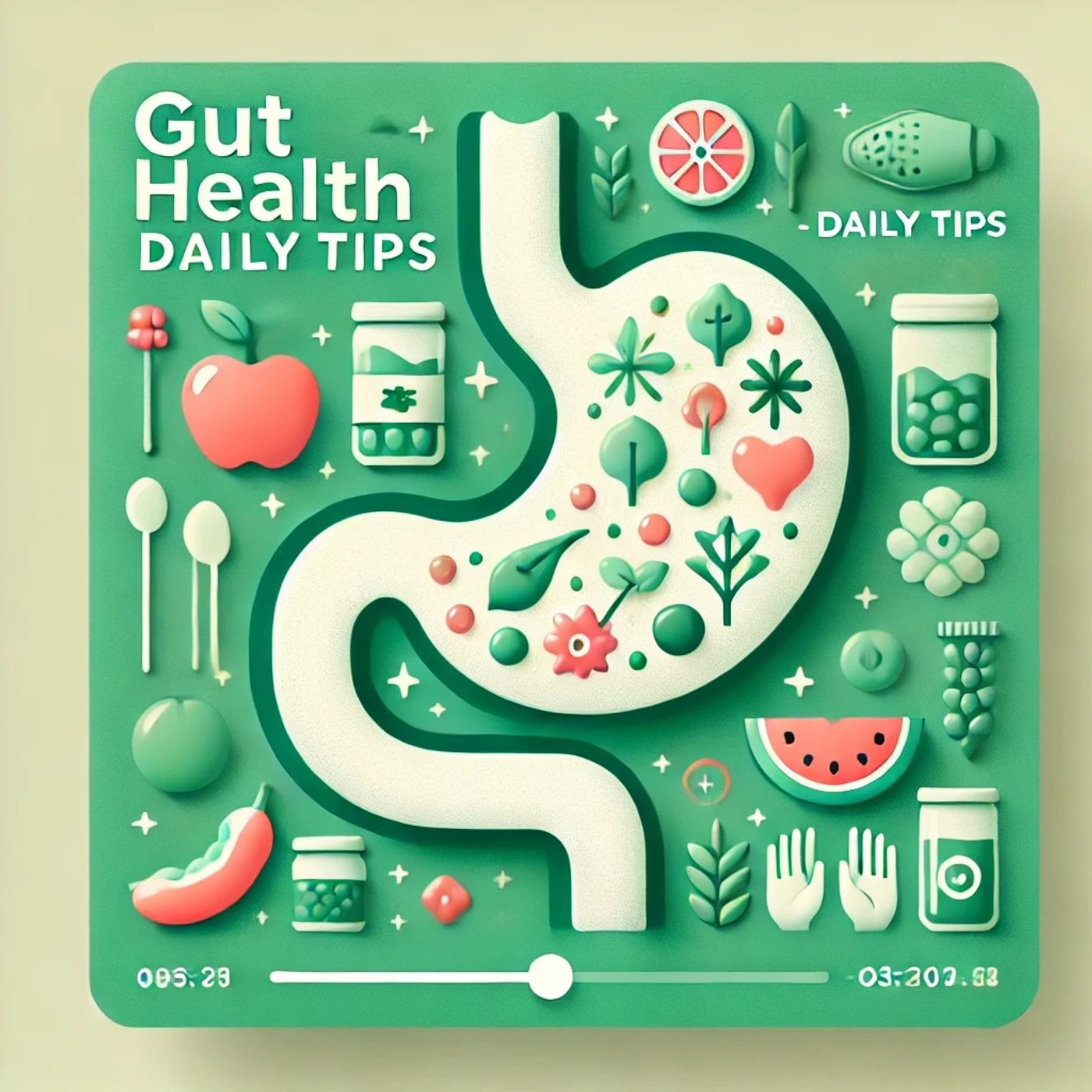Unlock the Key to Optimal Health: Discover the Secrets to a Thriving Gut Microbiome
Update: 2025-09-29
Description
Gut health has emerged as a crucial element of overall well-being, influencing everything from digestion to mental health. The gut, often referred to as the "second brain," houses trillions of bacteria that play a pivotal role in nutrient absorption, immune function, and even mood regulation. Maintaining a healthy gut microbiome is essential for optimal health.
One of the simplest ways to support gut health is through diet. Incorporating a diverse range of plant-based foods can significantly benefit the gut microbiota. Consuming a variety of vegetables, fruits, whole grains, nuts, and seeds provides essential fibers that nourish beneficial bacteria. These fibers are known as prebiotics, serving as food for probiotics, the beneficial bacteria in the gut.
Fermented foods are also critical allies in maintaining a healthy gut. Yogurt, kefir, sauerkraut, kimchi, and kombucha are rich sources of probiotics. These foods introduce live, beneficial bacteria to the gut, supporting its microbial balance. Regularly including fermented foods in your diet can enhance digestive health and bolster the immune system.
Hydration plays an underestimated yet vital role in gut health. Water is crucial for maintaining the mucosal lining of the intestines and facilitating the movement of food through the digestive tract. Staying adequately hydrated ensures that the digestive system operates efficiently, reducing the risk of constipation and supporting the health of the gut lining.
Mindful eating is another habit that can have profound effects. Eating slowly and chewing food thoroughly aids in the digestive process. It allows the stomach to signal when it's full, preventing overeating and reducing stress on the digestive system. This practice also enhances the body’s ability to absorb nutrients effectively.
Stress management is integral to gut health. The gut and brain are closely connected, with stress having a direct impact on gut function. Practices such as mindfulness, meditation, and regular physical activity can reduce stress levels, positively affecting gut health. Activities like yoga and tai chi, which focus on deep breathing and relaxation, can be particularly beneficial.
Finally, avoiding unnecessary antibiotics is vital. While antibiotics are crucial in treating bacterial infections, they do not discriminate between harmful and beneficial bacteria. This can lead to an imbalance in the gut microbiome. If antibiotics are prescribed, it's essential to follow the healthcare provider's instructions precisely and consider taking a probiotic supplement to support gut health during and after the treatment.
Incorporating these habits into daily life can foster a thriving gut microbiome, contributing to enhanced overall health. The journey to improved gut health is a holistic one, encompassing dietary choices, lifestyle modifications, and mindful practices, each playing a vital role in achieving and maintaining a balanced gut.
For more http://www.quietplease.ai
Get the best deals https://amzn.to/3ODvOta
This content was created in partnership and with the help of Artificial Intelligence AI
One of the simplest ways to support gut health is through diet. Incorporating a diverse range of plant-based foods can significantly benefit the gut microbiota. Consuming a variety of vegetables, fruits, whole grains, nuts, and seeds provides essential fibers that nourish beneficial bacteria. These fibers are known as prebiotics, serving as food for probiotics, the beneficial bacteria in the gut.
Fermented foods are also critical allies in maintaining a healthy gut. Yogurt, kefir, sauerkraut, kimchi, and kombucha are rich sources of probiotics. These foods introduce live, beneficial bacteria to the gut, supporting its microbial balance. Regularly including fermented foods in your diet can enhance digestive health and bolster the immune system.
Hydration plays an underestimated yet vital role in gut health. Water is crucial for maintaining the mucosal lining of the intestines and facilitating the movement of food through the digestive tract. Staying adequately hydrated ensures that the digestive system operates efficiently, reducing the risk of constipation and supporting the health of the gut lining.
Mindful eating is another habit that can have profound effects. Eating slowly and chewing food thoroughly aids in the digestive process. It allows the stomach to signal when it's full, preventing overeating and reducing stress on the digestive system. This practice also enhances the body’s ability to absorb nutrients effectively.
Stress management is integral to gut health. The gut and brain are closely connected, with stress having a direct impact on gut function. Practices such as mindfulness, meditation, and regular physical activity can reduce stress levels, positively affecting gut health. Activities like yoga and tai chi, which focus on deep breathing and relaxation, can be particularly beneficial.
Finally, avoiding unnecessary antibiotics is vital. While antibiotics are crucial in treating bacterial infections, they do not discriminate between harmful and beneficial bacteria. This can lead to an imbalance in the gut microbiome. If antibiotics are prescribed, it's essential to follow the healthcare provider's instructions precisely and consider taking a probiotic supplement to support gut health during and after the treatment.
Incorporating these habits into daily life can foster a thriving gut microbiome, contributing to enhanced overall health. The journey to improved gut health is a holistic one, encompassing dietary choices, lifestyle modifications, and mindful practices, each playing a vital role in achieving and maintaining a balanced gut.
For more http://www.quietplease.ai
Get the best deals https://amzn.to/3ODvOta
This content was created in partnership and with the help of Artificial Intelligence AI
Comments
In Channel





